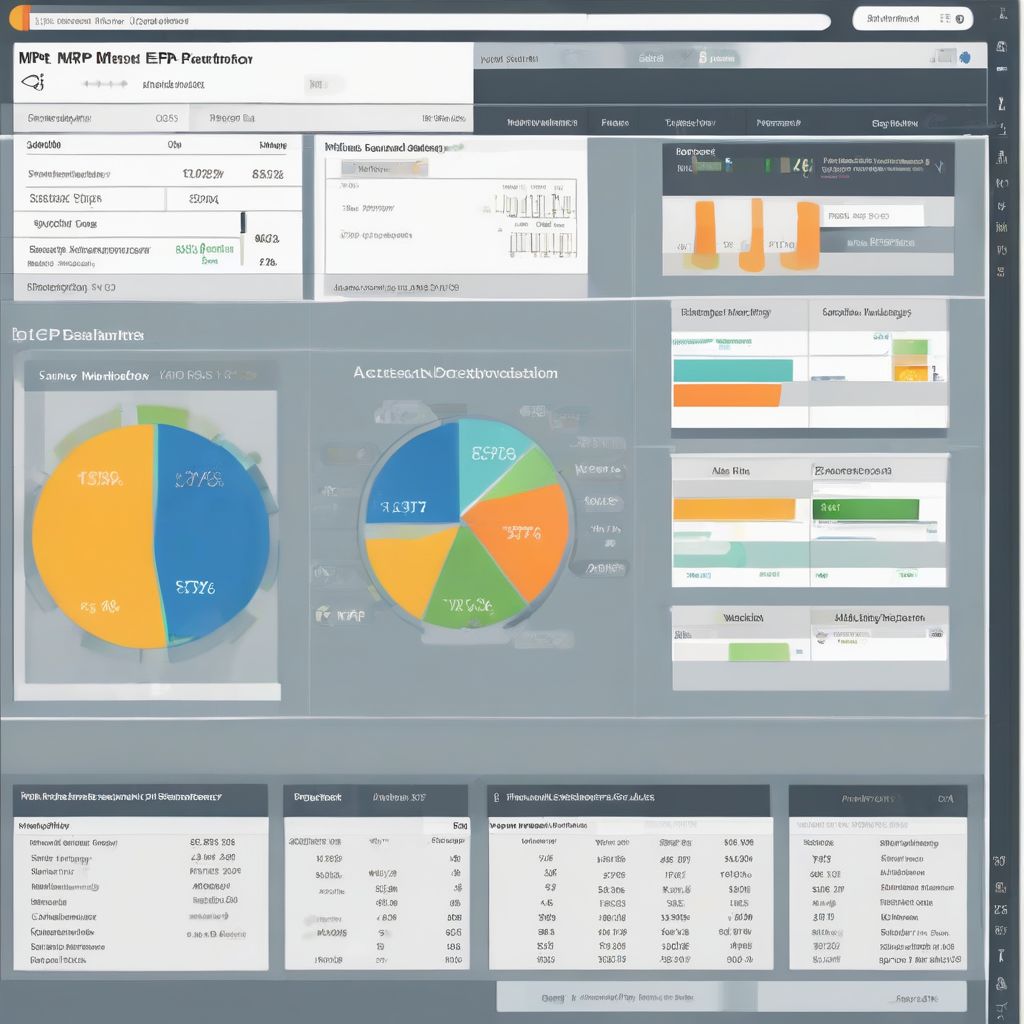In today’s fast-paced business environment, efficiency is key to success. This is where Erp Mrp Systems come into play, offering a powerful solution to streamline operations, boost productivity, and drive growth. But what exactly are ERP MRP systems, and why are they crucial for modern businesses?
Delving into ERP and MRP
Before we explore the combined power of ERP MRP systems, let’s break down each component:
ERP (Enterprise Resource Planning): Think of ERP as the central nervous system of your business. It’s a comprehensive software solution that integrates and manages all core business processes, including finance, human resources, supply chain, and customer relationship management. By providing a centralized platform for data storage and access, ERP systems foster collaboration, improve data accuracy, and facilitate informed decision-making.
MRP (Material Requirements Planning): MRP focuses specifically on the planning and management of manufacturing processes. It helps businesses determine the raw materials, components, and resources needed to meet production targets, optimize inventory levels, and minimize waste.
The Synergy of Erp Mrp Systems
An ERP MRP system combines the power of both ERP and MRP, providing a holistic approach to managing your business from end to end. This integration enables businesses to:
- Optimize Inventory Management: Accurately forecast demand, avoid stockouts and overstocking, and reduce carrying costs.
- Streamline Production Planning: Coordinate production schedules, allocate resources effectively, and minimize production delays.
- Enhance Supply Chain Visibility: Track materials from procurement to delivery, identify bottlenecks, and improve supplier collaboration.
- Improve Financial Performance: Gain real-time insights into financial data, make informed financial decisions, and boost profitability.
 ERP MRP System Dashboard
ERP MRP System Dashboard
Benefits of Implementing an Erp Mrp System
Investing in an ERP MRP system offers numerous benefits, including:
- Increased Efficiency and Productivity: Automate tasks, reduce manual errors, and free up valuable time for your employees to focus on strategic initiatives.
- Improved Collaboration and Communication: Break down data silos and foster seamless communication between different departments.
- Enhanced Decision-Making: Make data-driven decisions based on real-time insights into your business operations.
- Reduced Costs: Optimize inventory levels, minimize waste, and improve overall operational efficiency.
- Increased Customer Satisfaction: Improve on-time delivery rates, provide better product quality, and enhance customer experience.
Key Questions to Consider
When choosing an ERP MRP system, it’s essential to ask the right questions:
- What are the specific needs of my business?
- What features are most important for my industry?
- What is my budget for implementing and maintaining an ERP MRP system?
- What level of customization and support do I require?
Conclusion
In today’s competitive landscape, implementing an ERP MRP system is no longer a luxury but a necessity for businesses looking to thrive. By integrating and automating core business processes, these systems empower organizations to optimize operations, drive growth, and achieve a significant competitive edge. If you’re ready to take your business to the next level, exploring ERP MRP solutions is a crucial step in the right direction.
We encourage you to share your thoughts, questions, and experiences with ERP MRP systems in the comments section below.